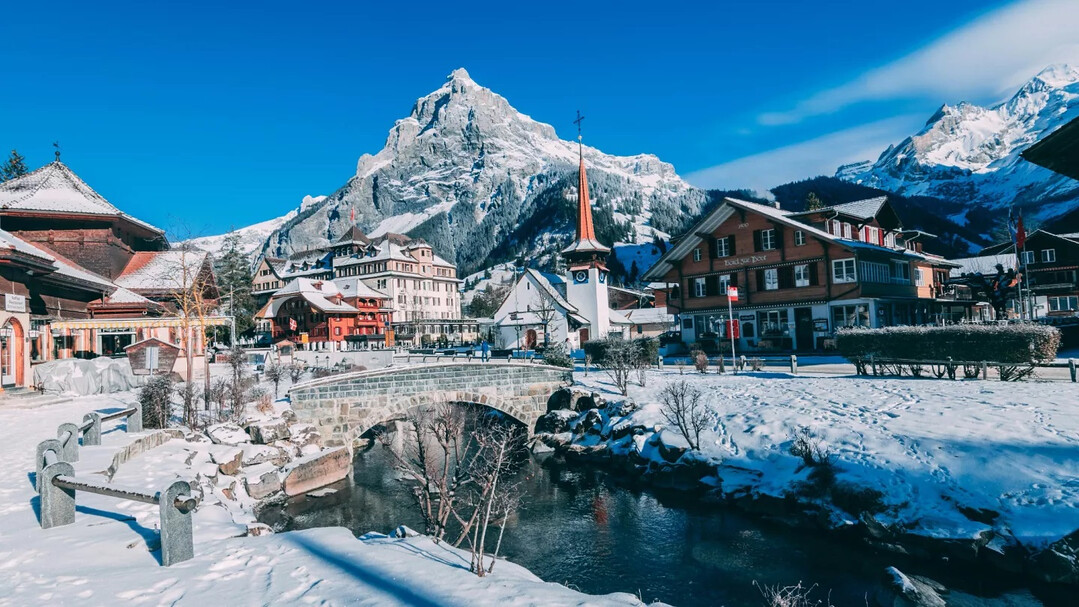
ST. MORITZ, Switzerland - As global uncertainties rise, the number of the world's wealthiest individuals continues its upward trajectory, and their appetite for ultra-luxury experiences is fueling a significant shift in Switzerland's tourism industry. Renowned for its understated opulence, Switzerland is increasingly catering to this elite clientele, with a burgeoning number of five-star hotels aiming to meet their every desire.
From the meticulously renovated belle epoque palaces in resorts like St. Moritz, offering ski butlers and 24-hour room service, to the emergence of new luxury developments in traditional towns like Wengen, Switzerland is strategically positioning itself to attract high-spending visitors from key markets such as the US, the Gulf states, China, and Southeast Asia.
Markus Berger of Switzerland Tourism emphasizes the economic rationale behind this focus. While five-star hotel stays account for approximately 8% of all overnight stays, they generate at least 25% of the country's total tourism revenue. "The numbers speak for themselves," Berger states. "The high economic significance justifies a commitment to luxury guests." He further argues that Switzerland's high-wage economy necessitates a focus on quality and added value rather than competing on price with less expensive destinations.
The influx of affluent tourists undoubtedly benefits certain sectors. Michelin-starred restaurants and high-end boutiques in alpine resorts are thriving, contributing to the broader economy. However, this pursuit of luxury comes at a potential cost for local communities.
In popular resorts like St. Moritz and Zermatt, long-standing concerns persist about rising prices potentially pricing locals out of the market. A significant challenge is finding affordable accommodation for the numerous hotel and restaurant staff required to maintain five-star service. These workers often face long commutes from more affordable neighboring villages, especially after late-night shifts.
Monika Bandi, head of the Tourism Research Unit at Bern University's Centre for Regional Development, views Switzerland's strategy as a delicate balancing act between "quantity versus quality." She suggests that higher spending from a consistent number of visitors can be more beneficial than simply increasing tourist numbers. However, she cautions about reaching a "tipping point, where the destinations really lose their character."
This concern is particularly evident in Wengen, a resort famous for its Lauberhorn ski race and long-standing connection with British skiers. The town is now witnessing the development of its first five-star hotel and a luxury complex of serviced "hotel apartments." These apartments, intended for wealthy tourists seeking holiday homes, exploit a loophole in Swiss law by being classified as hotel units, potentially circumventing restrictions on "cold beds" – holiday homes that remain unoccupied for extended periods.
The Swiss Heritage Society has formally objected to the Wengen project, arguing that it resembles a typical holiday home complex lacking genuine integration into the community. Spokesman Simon Weiss fears that the focus is on private luxury with minimal public spaces, potentially undermining Wengen's traditional character. Some locals echo these sentiments, with one telling Swiss media, "It's not St Moritz here... Wengen is not posh."
Despite these concerns, Wengen's tourism director, Rolf Wegmüller, believes the trend towards luxury accommodation will not fundamentally alter the resort's identity. He points out that Wengen's car-free status will prevent the ostentatious display of wealth seen in some other high-end destinations. He also emphasizes the resort's continued appeal to long-term visitors, some of whom have been coming for generations, fostering a sense of community.
Brian Bollen, a long-time visitor and member of the "Down Hill Only" ski club, acknowledges Wengen's enduring charm but expresses concern about overdevelopment. Nevertheless, many in Wengen, like Switzerland Tourism, view the investment in alpine resorts as vital for the local economy, particularly given the decline in small alpine dairy farms due to changing global trade rules.
Berger notes that while the five-star sector is growing, three-star hotels still represent the largest category in Switzerland. Wegmüller adds that Wengen itself offers a range of accommodation from one to five stars, which he sees as a positive attribute for the resort.
Ultimately, Switzerland's calculated gamble on attracting the world's wealthiest tourists appears to be driven by economic necessity and a focus on its inherent strengths: quality, service, and a unique alpine experience. However, the long-term success of this strategy will depend on carefully navigating the potential trade-offs and ensuring that the pursuit of luxury does not erode the very charm and character that have made Swiss destinations so appealing for generations.
[Copyright (c) Global Economic Times. All Rights Reserved.]






























